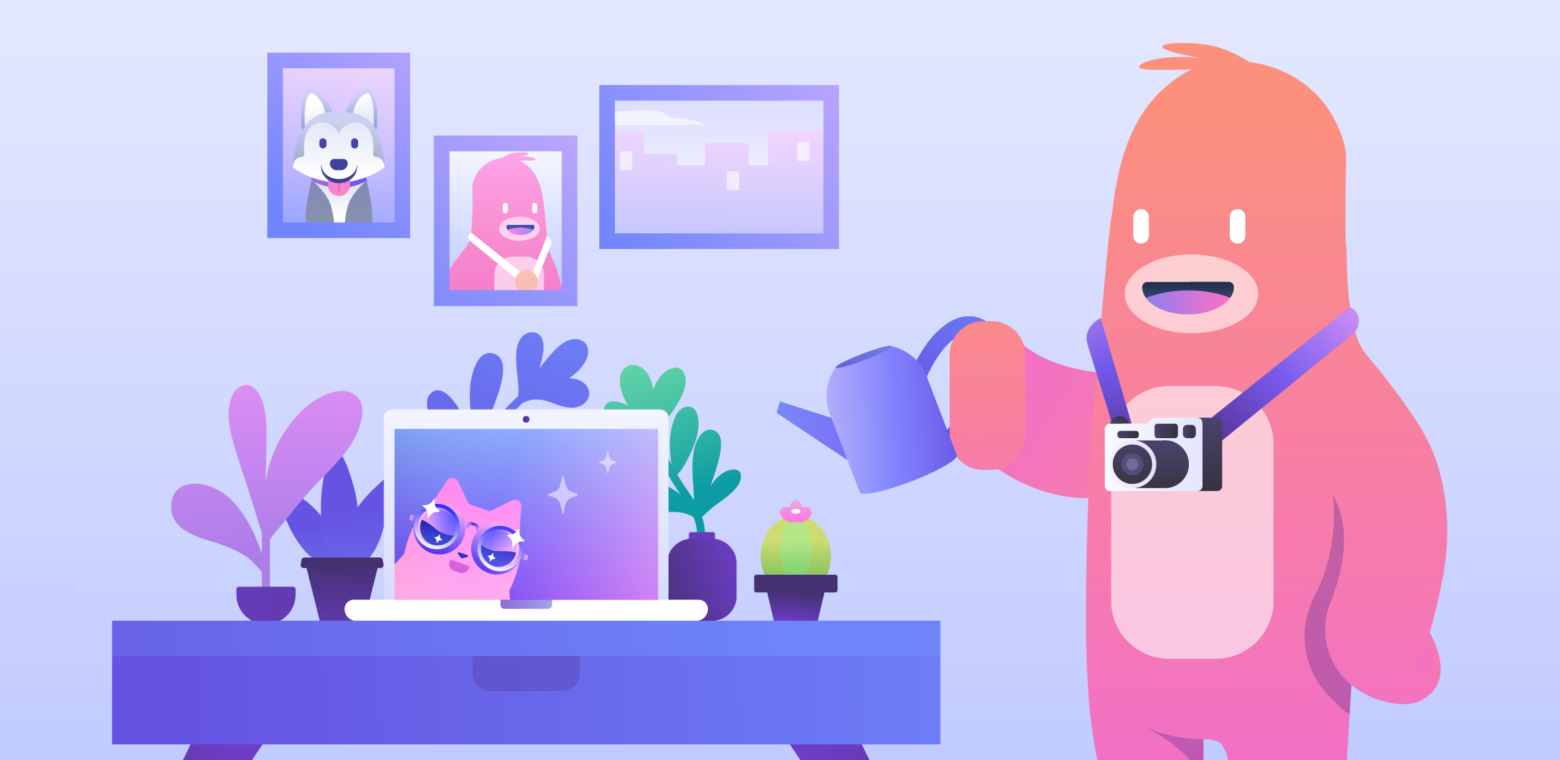Imagine that you’re meeting someone for the very first time. Perhaps you’re reaching for the same appetizer at a dinner party. Or maybe you’re seated next to each other on an airplane.
After a little bit of polite chit chat about the charcuterie board or the lack of legroom in your non-exit row, the inevitable question pops up: So, what do you do?
We’ve all answered it, and we’ve all asked it. It’s one of the most oft-repeated conversation starters, and for good reason. Our careers make up a major part of our lives, and this question is a seemingly straightforward way to get a grasp on what makes someone who they are.
But, is it really?
Do You Work To Live, Or Live To Work?
While asking what someone does for a living has become as natural as shaking hands or asking, “How are you?,” is it truly the best way to start an interaction with a stranger?
Or, is it just adding pressure to define ourselves solely by how we earn a paycheck—in a world where our jobs are already bleeding beyond normal working hours?
It seems like the latter might be the case, especially for the younger generations of the workforce. In a survey of more than 2,000 millennials by the Illinois psychiatric center, Yellowbrick, 70% of respondents agreed that they identify themselves only through their jobs.
Some skeptics might think, “Hey, what’s so wrong with that?” You invest a lot of energy and effort into your career, and if you’re beaming with pride about how you make your living, what’s the problem with leaning on that as a concise summary of who you are?
These professional definitions do wonders for your LinkedIn profile, but may be damaging your self-identity.
More Than Just A Job: The Dangers Of Defining Yourself By Your Career
In all honesty, there’s nothing inherently wrong with being proud of your career choices. But, as it turns out, using only your profession as the core of your identity does present some potential risks and pitfalls.
1. It Pigeonholes You Into One Identity
When I was in my freshman year of college, I had an experience that really stuck with me.
I began my education as a musical theatre major. Up to that point, performing was all I had ever done—I never played soccer, joined student council, or written for the school newspaper. I was the girl who did theatre. It defined who I was for as long as I could remember.
After making it through one semester of the musical theatre program, I started to realize that maybe that wasn’t what I wanted to do for a long-term career. The thought alone was terrifying. I vividly remember lamenting to my mom on the phone. “Mom, if I don’t perform anymore, what do I have left? Who am I?”
I found myself trapped in a full-blown identity crisis—all because I dared to think about trying something new.

Maybe you won’t be quite as melodramatic as I was (ahem, there was a reason I was in theatre), but I think a really similar dilemma can hit you in regards to your career.
What if things aren’t going well at work? What if you’re laid off? What if your company shuts down? What if you’re itching to make a change and want to shift to an entirely new position or industry? Then what? You’re left without an identity entirely? That hardly seems fair.
It’s also worth noting that your profession might be a big piece of your life, but it doesn’t make up the entirety of it. Continuously relying on our careers to summarize who we are means we end up robbing people of other interesting pieces of identities.
Just look at Kristen Bell as a celebrity example. She’s a well-known and accomplished actress. But, she’s also a passionate animal rights advocate and the co-founder of a line of eco-friendly baby products. Only describing herself as an “actress” time and time again barely scratches the surface on what makes her who she is.
After all, you might be one heck of an amazing software developer. But maybe you’re also a dog owner, a marathon runner, a dedicated conservationist, and an amateur photographer.
Simply pointing to your career (and only your career!) as a definition of who you are pins you into one category, and then fails to complete the picture.
2. It Doesn’t Leave As Much Room For Connection
A team member at Trello recently attended a dinner party where everyone was required to introduce themselves without mentioning what they do for work.
Sounds tough and even somewhat awkward, right? But the results were impressive.
This team member mentioned that the challenge opened up genuine conversations, as well as an opportunity for real connection over shared hobbies, passions, and experiences.
Without relying on that age-old conversation starter, people were able to bond over topics that probably never would’ve bubbled to the surface had they stopped at, “I’m a financial advisor!” and “Oh, cool. I’m a customer care representative!”
That’s another benefit of defining an identity outside of your career.
It forces you to think outside of your day job and pinpoint other ways you can describe what makes you who you are—and doing so gives you chances to connect with other people who might not know anything about your chosen profession.
Expanding your horizons (and your network!) outside of people who already seem familiar on some level can lead to numerous benefits for you, too—especially when it comes to evolving your own perspective and forging beneficial new bonds.
Just look at this study that was done at Harvard University, where incoming freshmen are assigned their roommates. As a result of these seemingly random assignments, people from various backgrounds, ethnicities, races, and more are put together to live together for the academic year. Tanya Menon, one of the study’s co-authors, explains:
“Some students might be initially uncomfortable, but the amazing thing is, by the end of the year, many of them choose to keep living with their roommates, showing that these random connections between diverse people can result in positive relationships”
3. It Can Lead To Burnout
If something is going to be your source of identity, you understandably want to be phenomenal at it, right? Just think: You’d probably be less likely to tout that you’re a digital marketing analyst to a room full of people if you’re constantly late to the office, barely meet minimum expectations, and are practically on the verge of getting fired.
Don’t get me wrong—wanting to knock your job responsibilities out of the park is positive and admirable. But, doing so just to affirm your identity can be a slippery slope.
Needing to invest so much into your day job means that your career can quickly overtake your other interests, and add increased pressure to be switched into “work mode” at all times (even during evenings, weekends, and vacations!). And, unfortunately, that’s becoming a pervasive problem for most of us.
One 2016 study found that participants spend an average of eight hours each week dealing with email when they’re off the clock. A separate Gallup study found that 23% of the 7,500 employees surveyed report feeling burned out at work very often or always. Another 44% say they feel burned out sometimes.

When your job is your primary source of identity, it’s easy to feel guilt-ridden about investing time and energy into anything else that doesn’t ultimately serve your career progression—as if your hobbies and passions deserve way less importance and emphasis.
That’s a dangerous precedent to set, especially when you need interests outside of the office in order to recharge and lead a balanced life.
So… How Can You Help Change The Conversation?
Here’s the thing: We’ll probably never do away with the “what do you do?” question entirely. It’s ingrained in Western culture and—let’s call it like we see it—your career really does make up a big part of your life (nobody is saying you need to kick it to the curb entirely!).
However, I do think we could all benefit by challenging ourselves to forge identities outside of just how we earn a paycheck.
Fortunately, this is something that you can take action on ASAP—and doing so is actually pretty easy. The next time you’re meeting someone for the first time (whether you’re at a dinner party or trapped in the close quarters of an airplane seat), try to avoid immediately asking a question about their profession, and instead opt for something more open-ended and less career-focused like:
- How do you like to spend your free time?
- What’s something recent you’re really proud of?
- Do you have anything planned for this weekend?
You might just be surprised by the authentic and interesting conversations that blossom from there. Because after all, our careers might be an easy representation of what we do, but they certainly don’t tell the whole story of who we are.







































